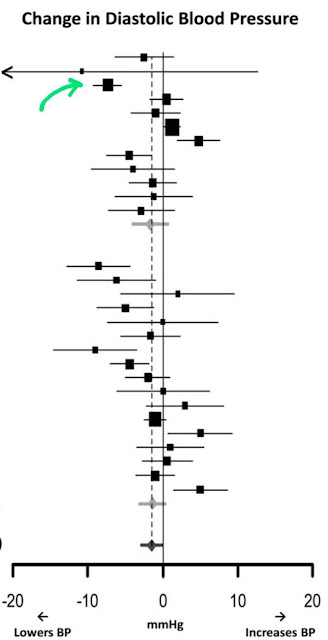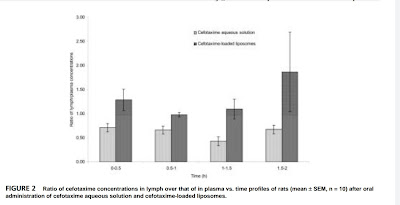Does vitamin C work against hypertension?
Hypertension, or high blood pressure, is a relatively mysterious disease, the causes of which are not entirely clear. If I understand the body as a self-healing intelligent system that, whatever it is controlled by, always tries to maintain a balance between processes, an increase in blood pressure must be the way to solve a fundamental problem. The body wouldn't just destroy itself. I just refuse to believe it, period.
The physical principle of the origin and nature of blood pressure is clear, although there are doubters here as well. But I'll leave it aside now. The standard explanation is that the blood volume of the left ventricle is forced into the aorta and other adjacent arteries by compression of the heart. Their elasticity causes them to "inflate" slightly like a balloon and take over the volume of blood expelled by the heart. This "inflation" of the arteries increases the blood pressure and we measure it as the so-called systolic pressure. This pressure is therefore affected by the volumes of the arteries, the ventricle, but mainly by the elasticity with which the arteries prevent this "inflation". This elasticity changes, decreases with stress and with age, the walls of blood vessels harden and they are less willing to change. This increases systolic blood pressure.
Between heartbeats, the volume of "inflated" blood flows smoothly through the narrowest vessels, capillaries, into the venous system and back into the, this time right, ventricle. The lowest pressure in the arteries just before the next heartbeat is called diastolic blood pressure. Its value depends mainly on the flow rate of the capillary system, when a person is at rest. Capilaries has a huge surface area and therefore the quality of the capillary wall surface will be crucial. Cells on any inner surface are called endothelium, and it is the capillary endothelial cells, their metabolism, production of free radicals, hydrogen peroxide and superoxide, nitric oxide and many other substances as well as mechanical damage to the finest surface structures (glycocalix) that affect diastolic blood pressure.
It is therefore clear from the theory that stress causes less arterial elasticity, increases heart rate and thus causes an increase in both systolic and diastolic blood pressures. However, the question remains as to why there is an increase in resting blood pressure and what is the causal relationship. Is there any stress to blame even though we are completely calm? That would be a fairly acceptable explanation. Could it be some chemical stress? For example, chronic inflammation, which produces a variety of toxins, or fat metabolism, which, if not compensated for by sufficient levels of reduced glutathione, produces large amounts of superoxide and hydrogen peroxide, causes insulin resistance and a number of other problems.
So would supplementing antioxidants help lowering high blood pressure? Let's see what the studies say. We ignore the American Heart Association's (AHA) claim that the use of antioxidants is not recommended for high blood pressure, and find that vitamin C, for example, could be effective in lowering blood pressure. We will use a meta study comparing data from 29 randomized controlled trials looking at the effect of increased vitamin C intake on blood pressure. And the result is quite clear, statistically significant. The magnitude of the reduction varies considerably from study to study, see figure, but the overall result is clear.
You can see that the results vary greatly, a lot depends on the specific design and the number of accessories. I was interested in one study marked with arrows. It is a high-quality 2008 study (randomized, double-blind, placebo-controlled) of 110 men with essential high blood pressure, supplemented with 1000 mg of ascorbic acid (vitamin C) and 400 IU of vitamin E over eight weeks. You can see that the pressure drop is almost 10 mmHg, which is a very significant improvement. Let's look at this study in more detail.
The study looked at non-obese men with systemic high blood pressure between the ages of 35 and 60, without diabetes, without dyslipidemia, non-smokers, those who did not perform more vigorous exercise, did not take medication, and did not increase consumption of fruits and vegetables.
The study also includes a table comparing the plasma and red blood cell parameters of people with normal blood pressure with people with hypertension (EH).
It is clear from the table that there are statistically significant differences in the level of vitamin C in the blood plasma and in the ratio of reduced / oxidized glutathione (GSH / GSSG) between the groups with normal and high blood pressure. This suggests the importance of well-functioning redox processes for health and maintaining normal blood pressure.
The other findings shown in the following graphs are also interesting. Orally administered vitamin C in the form of ascorbic acid, for example, substantially increases the level of reduced glutathione, superoxide dismutase activity (more about it here), catalase and glutathione peroxidase. These are all the most basic processes for removing radicals, superoxide and hydrogen peroxide. It is also seen that the administration of vitamin E (tocopherol) hardly changes its level in the blood.
I have already written about the importance of sufficient vitamin C content in the diet in this post. It proves to be an effective weapon in the fight against high blood pressure. If 1 gram can reduce the pressure by about 10 mmHg, what can 2 grams or 6 grams? Generally, 2 grams per day is considered a suitable dose for a healthy person.
There is also a special form of vitamin C called "liposomal vitamin C". The point is that it is possible to form microspheres from a phospholipid membrane filled with a vitamin C solution, which can therefore be absorbed in a different way, such as fats. If you are interested, google it. I'll just add that there are groups that try to make liposomal vitamin C at home. I was also very interested in home production a few years ago and none of the recipes published on the net met my requirements. They were too laborious and questionable, the probable content of liposomes was too low, etc. Therefore, I developed my own procedure, it takes a maximum of half an hour and no special equipment is needed. You can download the description here. Of course, like my entire blog, it's for educational purposes only.
Supplement:
It appears that vitamin C in the stomach promotes the formation of nitric oxide from nitrites, thus helping to lower blood pressure. However, this only applies if there is no fat in the stomach. Fats create an environment in which nitrosation occurs, i.e. the formation of cancer-causing nitrosoderivatives, and in this environment vitamin C intensifies these negative processes. Vitamin C should therefore be administered on an empty stomach or only with carbohydrates.
References:










Comments
Post a Comment